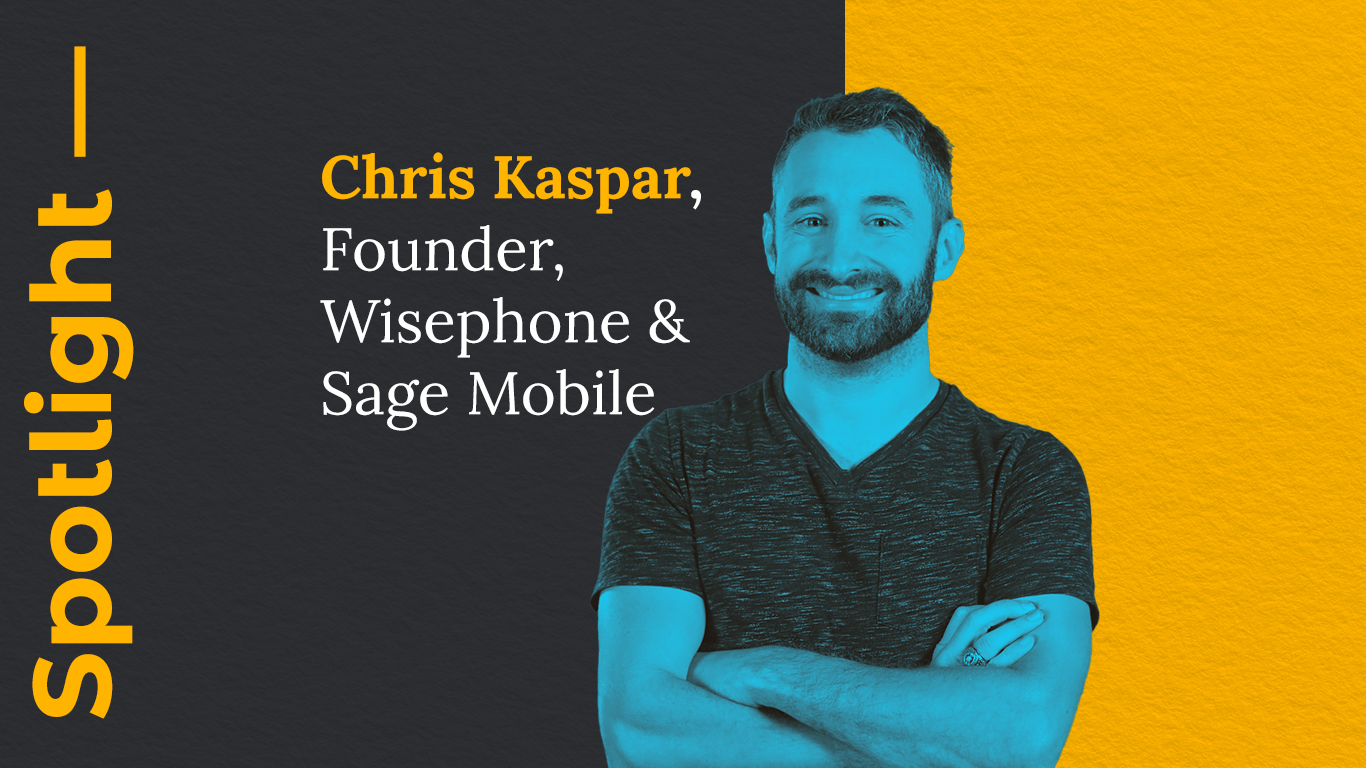In an era where constant connectivity is mistaken for progress, Chris Kaspar stands as a rare voice calling for restraint. As the founder of Wisephone and Sage Mobile, Kaspar has built his career around a radical belief: that technology should serve human flourishing, not erode it.
“I’ve seen what smartphones can do to a child’s soul,” Kaspar begins, speaking not as an entrepreneur but as a father of six. Together with his wife, Ciera, he has also fostered other children, some of whom were exposed to the darker corners of the internet far too young. “It broke my heart to watch them wrestle with their addictions to screens, to see their innocence stolen by algorithms designed to keep them hooked. I couldn’t just stand by. I had to build something better, for my kids, for every family.”
That conviction became the foundation for Wisephone, a minimalist smartphone designed to strip away digital noise, and later, Sage Mobile, the platform powering a new ecosystem of “intentional technology.” Kaspar’s mission is not anti-tech, but pro-freedom: “It’s not about taking the tech away,” he explains. “It’s about giving families the freedom to decide what really matters to them, without distraction.”
Redefining success in a market addicted to engagement —
Kaspar’s companies operate in a sector dominated by tech giants whose business models depend on attention and addiction. Competing in that environment by offering simplicity, he says, required rethinking the entire foundation of the device.
“We didn’t want to build a phone, we had to start with platform-level control in order to offer an unbeatable solution,” he says. “We didn’t want a phone that polices kids. We wanted one that’s safe by design, so parents can hand it to their child and feel peace, not paranoia.”
For Kaspar, the mission has always come before the margins. “Our goal is people, not profit,” he says simply. “We’re actively exploring ways to make Sage Mobile more accessible. Our team has sacrificed much personally for the mission. Every penny has been reinvested into creating healthy tech that heals, not harms.”
Building a business with conviction, even when it costs —
In an age of data monetisation and algorithmic manipulation, Kaspar’s ethical stance has often come at a high price. “As a technologist stewarding our own platform, we take digital privacy seriously, not as a talking point, but as a costly conviction,” he says.
The company has refused lucrative deals that would compromise its values. “We’ve intentionally left money on the table by refusing to monetise user data the way nearly every Silicon Valley company does,” Kaspar explains. “We’ve done a tremendous amount of reverse due diligence and only accepted checks from investors willing to sacrifice returns to create healthy tech instead of maximising shareholder profit.”
That commitment is more than rhetoric. “Our board once turned away an eight-million-dollar investment cheque because of a lack of value alignment,” he reveals. “We must reject the false choice between privacy and protection. The real opportunity, the one that will define the next era of technology, is building systems that safeguard children and preserve user privacy.”
The future of Techless and the rise of ethical innovation —
Looking ahead, Kaspar believes that innovation, not regulation, should lead the charge in reshaping how society relates to technology. But he’s clear-eyed about the role governments play. “Regulation shouldn’t smother innovation, it should hold the line,” he says. “Laws should disincentivise exploitation, punish the bottom-of-the-barrel actors, and protect children from evil.”
Ultimately, Kaspar’s hope lies in an informed public empowered to make better choices. “People are free to eat junk food or healthy food, but regulators step in to keep the very worst substances out of our food supply,” he says. “Technology should be no different.”
That philosophy underscores the heart of Sage Mobile: a vision of digital wellness where connection no longer costs us our peace of mind. “Sage Mobile is my attempt to help this happen,” Kaspar concludes. “A promise that children can connect with the world, without losing themselves.”




